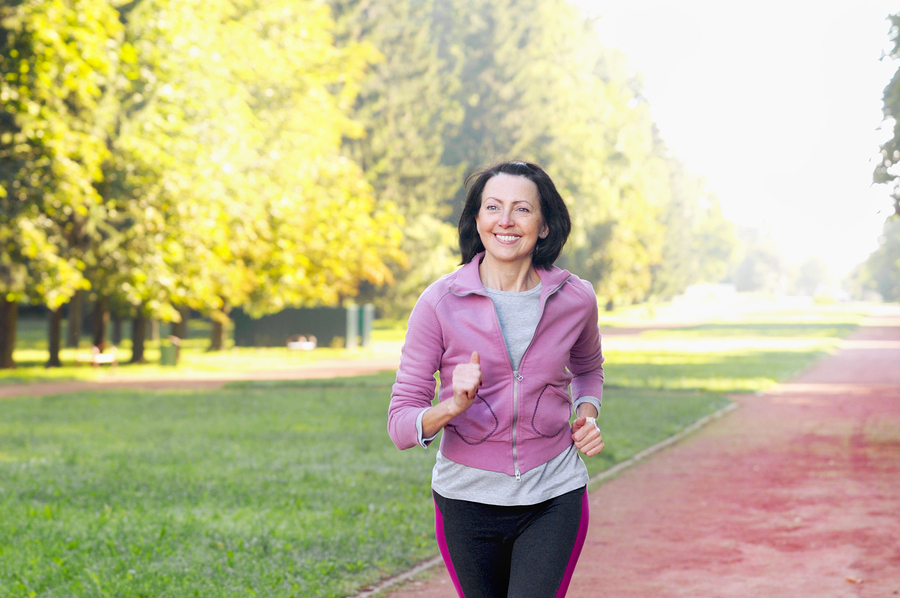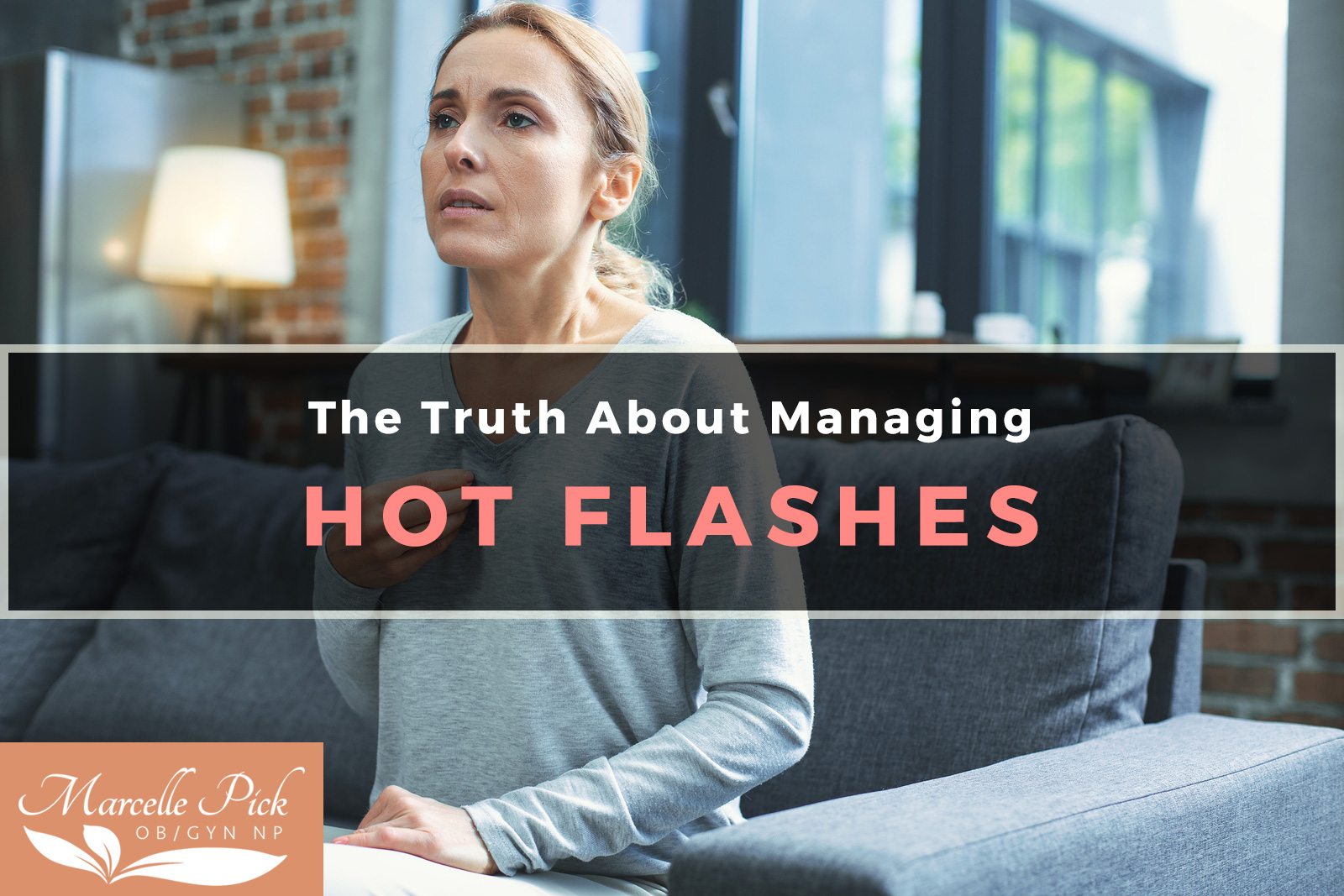So many women come to me with complaints about the symptoms that menopause brings: changes in mood, hot flashes, fatigue, weight gain, and bone loss. They think these uncomfortable symptoms are inevitable, and they’re convinced they have no control over them. But that’s just not true. As a woman, your body will go through these changes at some point. Your ovaries will decrease production of estrogen and progesterone, and your menstrual cycle will eventually cease. But the symptoms aren’t a natural response to these changes – they’re a message that something isn’t right; a cry for help from your body.
Menopause, by definition, is the lack of menses for 12 months. During this natural change, your body is undergoing so many adjustments that it needs all the support it can get. Because perimenopause can start years before actual menopause, and presents many of the same symptoms, it’s difficult to know when you are in that crucial year. But having an established exercise routine before menopause begins can keep the troublesome symptoms at bay. Let’s take a look at the connection between exercise and menopause and how exercise can help you sail through your transition.
Bone Loss and Menopause
Imbalanced hormones and lack of exercise contribute to the estimated 10% of bone loss that occurs in women in the ten years around menopause. Research conducted at UCLA has shown that most of this loss happens in a much smaller window: the year before and the two years after menopause. But you can do something about both of these factors. Your bones can stay strong, particularly if you stay moving!
There are many forms of exercise that are particularly helpful in maintaining good bone health. Pilates keeps your alignment where it should be, strengthening both the small muscles around your spine and the bone attached to these muscles. Yoga helps prevent falls by improving balance and coordination. Yoga also benefits bone health by creating tension, which in turn helps your body build new bone. The stretching that comes with practicing yoga also stimulates bone growth. The ancient practice of Tai Chi strengthens bone and relaxes your mind, which can also relieve the anxiety and irritability some women experience in menopause. Isometric exercise focuses on one muscle group at a time, giving that muscle group and the attached bone a great workout. Strength training aids in bone growth as well.
If you have osteopenia and need to build bone during your menopause transition, you might have to step it up a little. Instead of just increasing regular physical activity, you might need to be more structured and intentional about your program. Consulting with a personal trainer can result in a personalized plan that suits your specific needs.
Exercise and Menopause: Heart Disease Prevention
Heart disease is a leading killer of women, and research has shown that the risk of heart disease increases after menopause. One factor could be the natural decline of estrogen that occurs. Studies have shown that hormone therapy doesn’t appear to reduce the risk, so that’s not the answer.
Regular exercise that focuses on cardiovascular conditioning is one of the best ways to reduce this risk. If you already have an established exercise routine, you’re ahead of the game. If not, it’s certainly not too late. Find something you love that increases your heart rate – swimming, a brisk walk, dancing, hiking – and make it a habit. Strive for 150 minutes of physical activity per week to help reduce the risk of heart disease.
Exercise as a Weight Maintenance Tool
Estrogen plays a significant part in how your body regulates weight, so a decrease in estrogen during menopause can make maintaining your ideal weight even more difficult than it typically is. One of the most common complaints I hear from patients about menopause is extra pounds creeping on. Stubborn belly fat, in particular, shows up often in post-menopausal women.
Aerobic exercise has been shown to promote the loss of that abdominal fat and studies of perimenopausal women suggest that those who are most active gain the least weight. Weight gain is not only damaging to women’s self-esteem and self-image, but it also carries greater risk for certain diseases like heart disease and type 2 diabetes. Regular exercise can diminish these risks by keeping your weight in the healthy range.
Mood Boosting Benefits of Exercise
Many women talk about the anxiety, depression and/or irritability that accompany menopause. A friend of mine recently told me she had found herself feeling angry all the time, and she just couldn’t understand it. She knew she was being irrational when she snapped at her husband and children, but she just couldn’t seem to help herself. But after she started a regular exercise routine, the tendency to snap decreased significantly. Now, anytime she feels her irritability increase, she goes for a quick run, and comes back feeling much better!
Exercise naturally elevates mood through the release of feel-good hormones. And getting yourself moving is a much better way of coping with anxious feelings than hiding away in your bed, or snapping at everyone around you.
Exercise is Only One Piece of the Puzzle
One of the best things about using exercise to combat symptoms that pop up in menopause is that there are no negative side effects. That means you have nothing to lose by giving it a try. But as great as exercise can make you feel, it’s still only one piece of an overall healthy lifestyle.
Exercise combined with good nutrition packs a powerful punch, and there isn’t a downside to eating right either! There are so many essential nutrients that can keep your hormones balanced, which is so important to keeping you feeling your best.
Finding the right exercise for your personal needs is important, and with all the options available, it shouldn’t be too hard to find one that fits. Find something that brings you joy – maybe taking a brisk walk before work or after dinner; rediscovering the joy of bike riding; or learn a new form of dance – and you’ll be eager to participate. Dancing helps me stay happy and fit – what will it be for you? Get creative – any kind of regular movement counts!
From strong bones and a clear mind to heart health and a healthy weight, you have the power to chart a smooth course through menopause – and beyond! For additional information, I have many articles in my health library about balancing hormones and good bone health.









